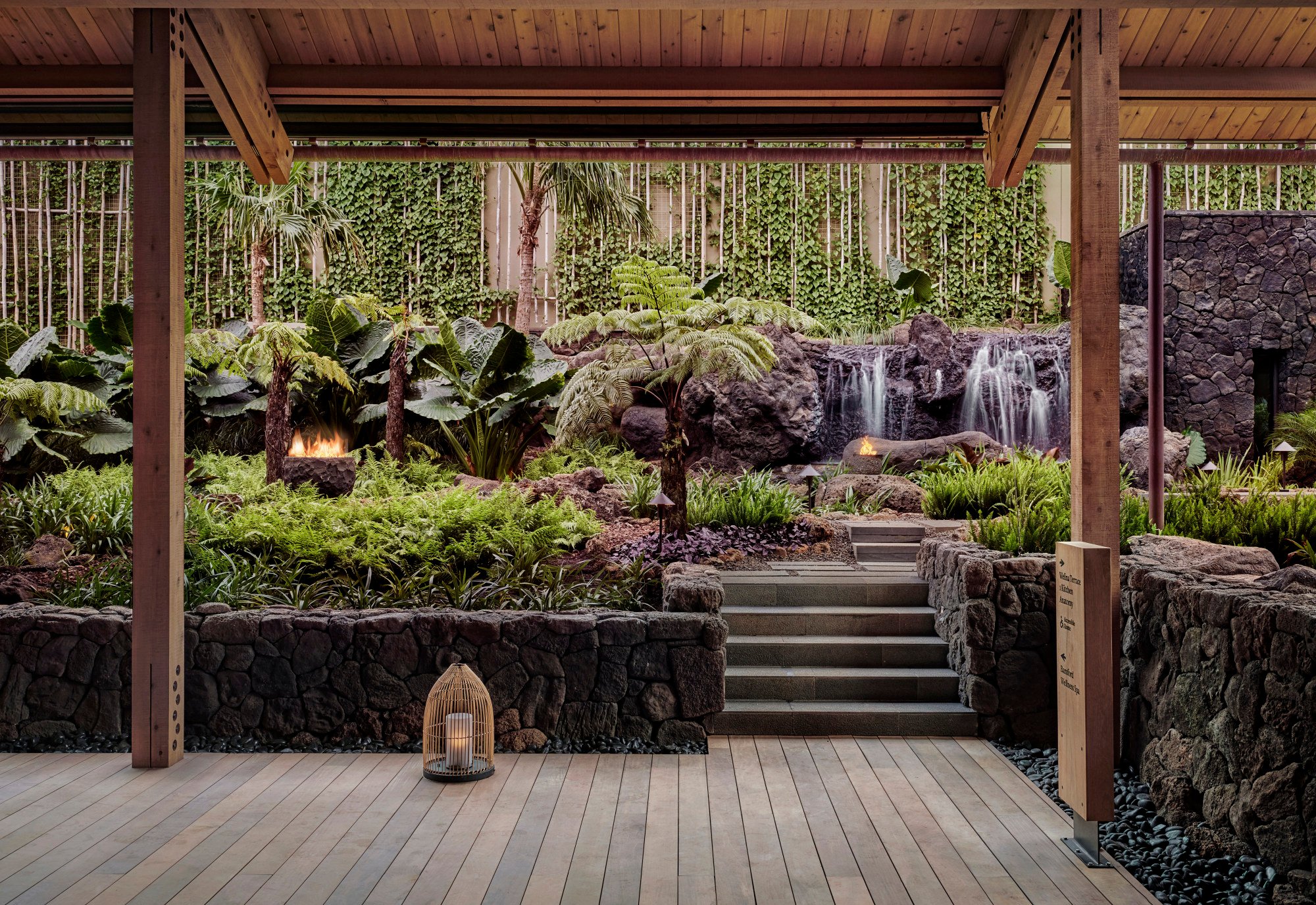 1 Hotel Hanalei Bay Lobby Garden
1 Hotel Hanalei Bay Lobby Garden
Song Saa, a luxury island resort on Cambodia's Koh Rong Island, was a pioneer in luxury and sustainability when it opened in 2012. Co-founder Melita Kurmadas embarked on a three-year plan to restore local marine life and create Cambodia's first marine protected area, then built a stunning resort with 24 luxury villas with energy-efficient thatched roofs and recycled wood from disused fishing boats.
To maximise the resort's impact for good, she founded the Song Saa Foundation in 2013, a non-profit organisation that spearheads projects that regenerate the natural environment while benefiting the local community, from infrastructure like solid waste management to community events like beach clean-ups.
“Our approach to sustainability is constantly evolving. What was best practice a few years ago is no longer best practice, which means we need to strive to do better. We always knew we would have a carbon footprint challenge because we're an island nation, so we have to find areas that go beyond our environmental impact. We recently achieved B Corp certification, which will resonate with our conscious guests,” Koulmandas explains. B Corp measures a company's social and environmental impact across a range of categories, analysing factors such as employee benefits, philanthropy, supply chain practices and input materials.
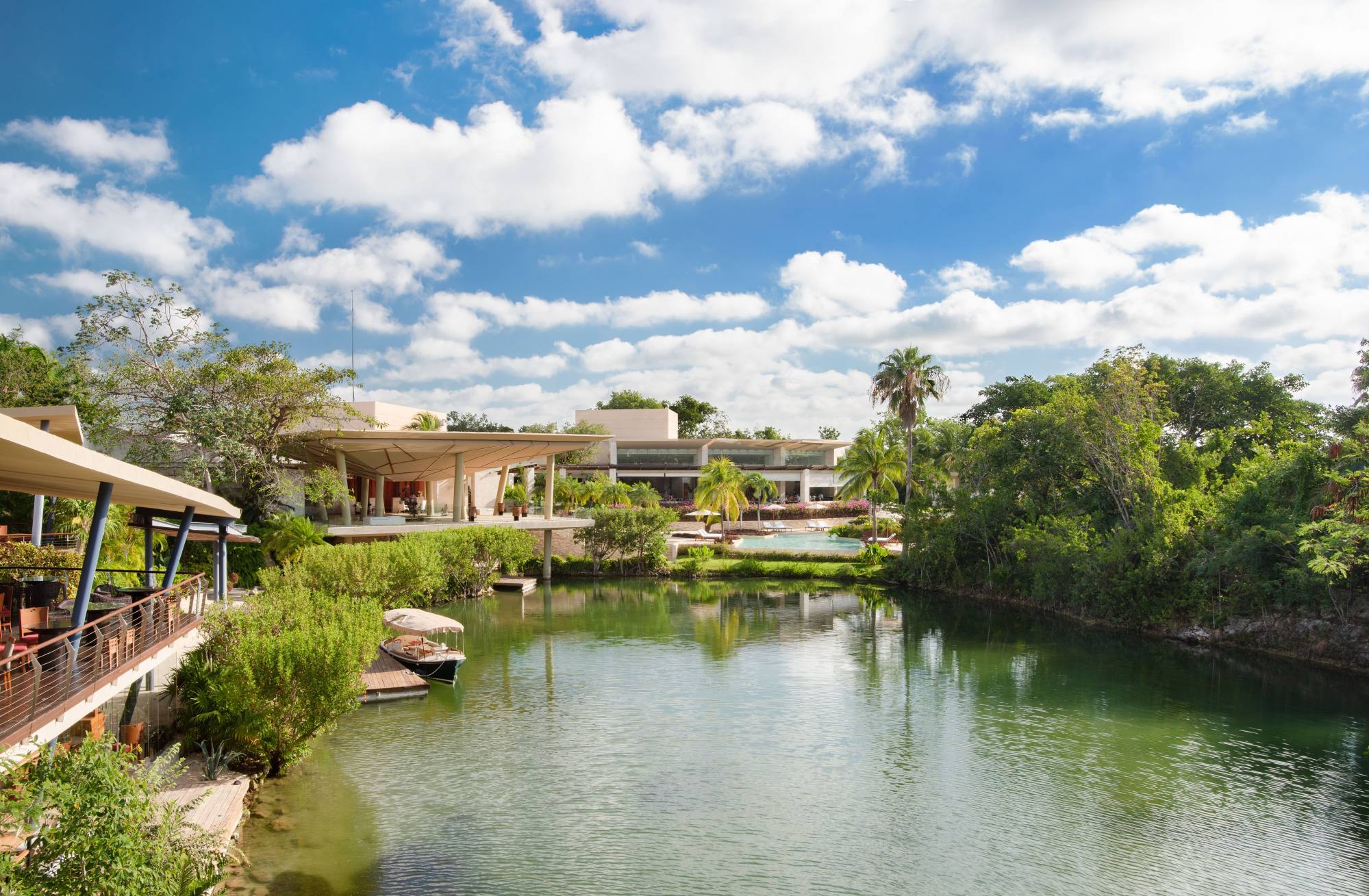 Rosewood Mayakoba
Rosewood Mayakoba
“We've also incorporated our collaboration with the foundation into the guest experience, which has been incredibly well received. Our team is out in the field every day, so guests can get involved and learn from the marine biologists and conservationists running the programs. For example, some guests were excited to help map new seagrass beds we'd just discovered,” she adds.
The guest experience is also the foundation of Rosewood Hotels' Impact Framework, which focuses on empowering communities and embracing sustainable practices. Luxury here is defined as an enriching experience for guests and the community, whether that be dining on locally sourced ingredients from nearby farms or dining in a beautifully designed restaurant made from repurposed local materials.
“Luxury is no longer just about staying in the most beautiful room or enjoying a five-course meal. It's now about discovering the heart and soul of a place through experiences designed to celebrate and protect it. Luxury hospitality is now a connector that drives real change in the industry,” said Mehvesh Mumtaz Ahmed, vice president, philanthropy, Rosewood Hotel Group.
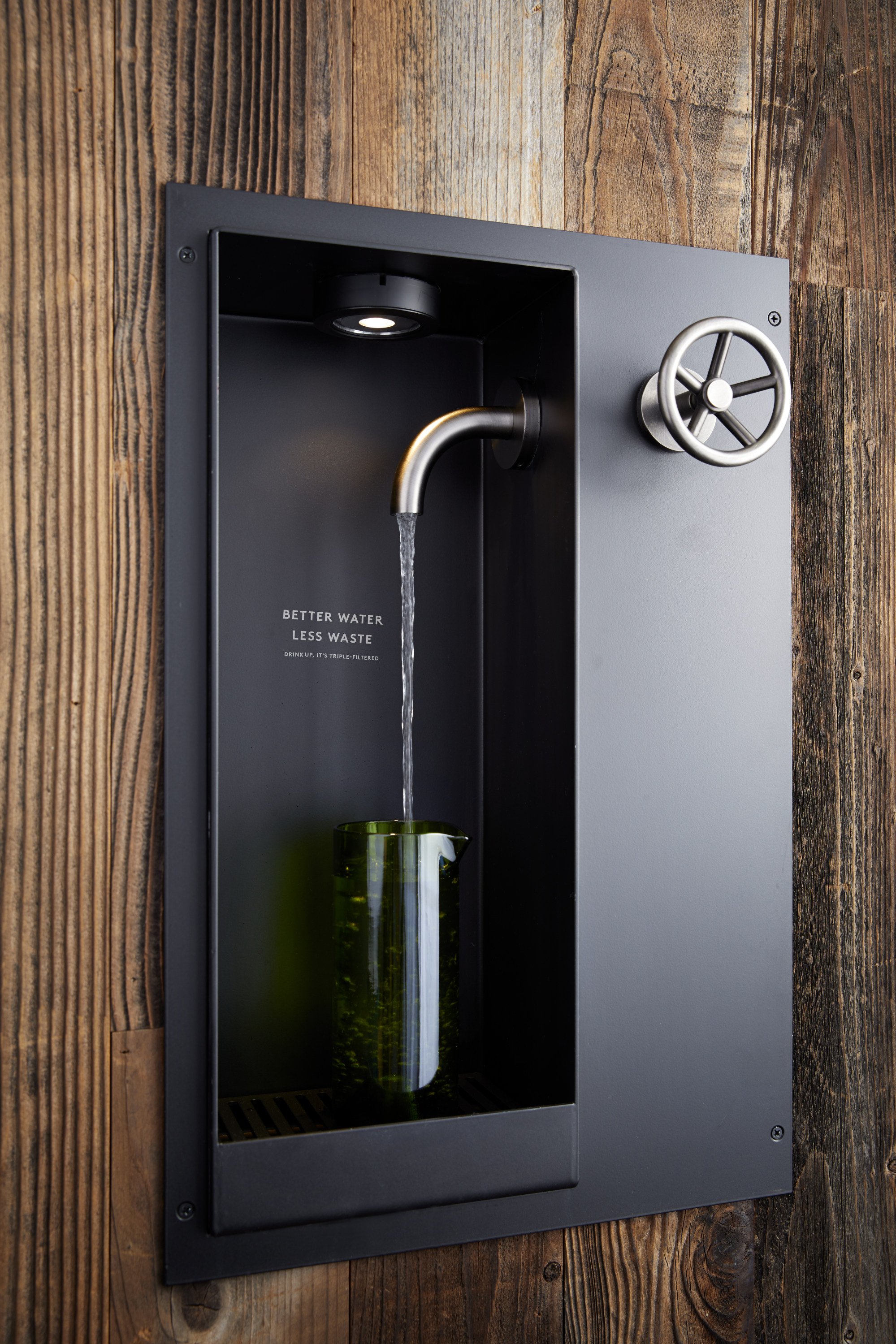 1. Hotel in-room water purifiers
1. Hotel in-room water purifiers
The group recently introduced Impact Trailblazers, six sustainability-focused properties in locations including Phuket, the Bahamas, Mexico, Cambodia and even Hong Kong. These hotels have committed to achieving at least one of six “stretch” goals by 2025, including 100% carbon neutrality or 90% waste diversion.
“Guests can and should observe how the hotels they visit are delivering on their sustainability vision. Simply supporting these brands that are also supporting their destinations can have a huge impact and inspire other businesses to adopt more sustainable practices to stay competitive,” she says.
US-based 1 Hotels is committed to reducing its environmental impact and connecting its guests with the social and natural environment. All of its properties in the US are LEED certified, meaning they comply with standards that demonstrate “Leadership in Energy and Environmental Design.” With locations in cities like New York, Miami, Los Angeles, and London, the company weaves sustainability into the guest experience, from buildings and design to food and service.
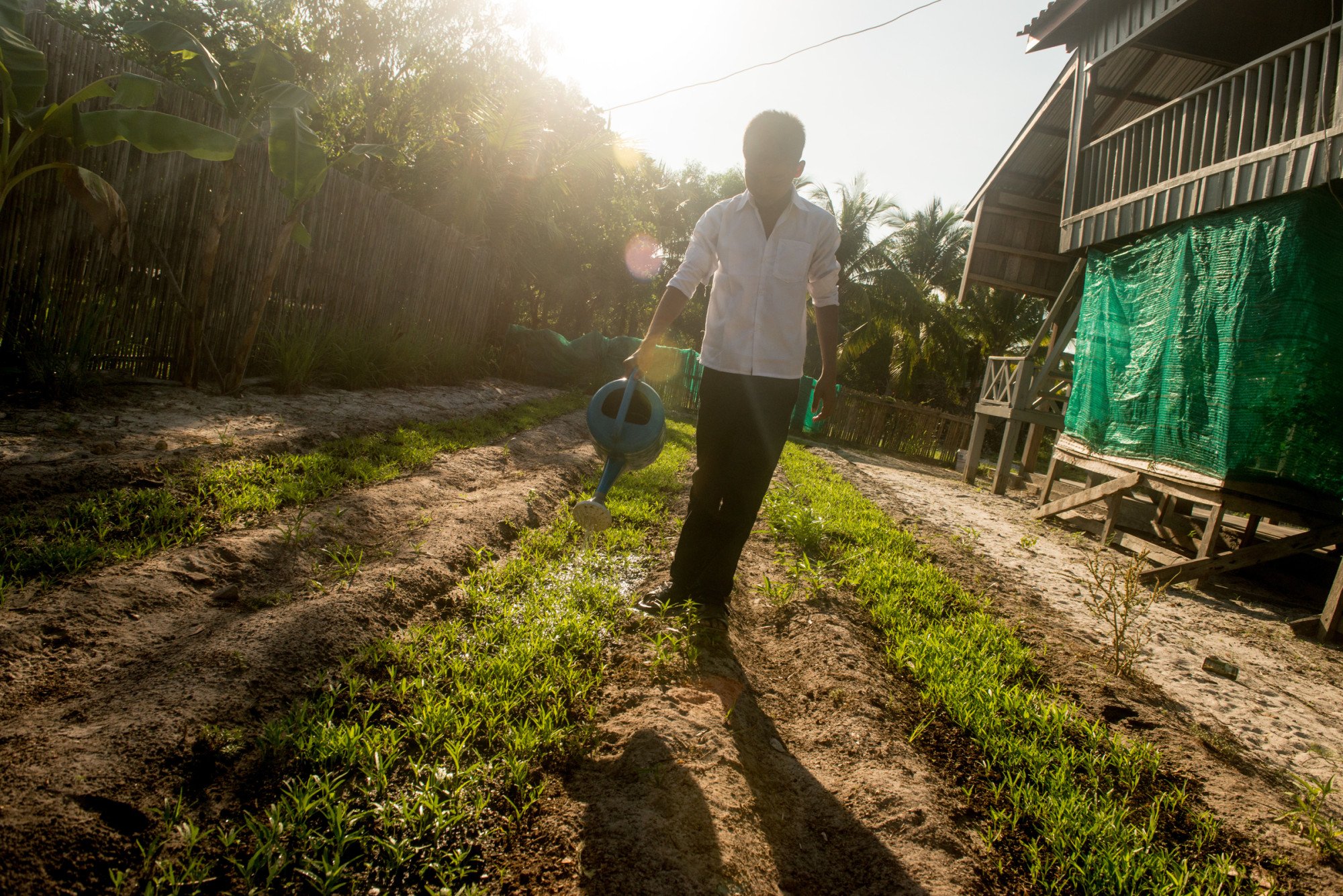 A charity program at Song Saa Resort on Koh Rong Island, Cambodia
A charity program at Song Saa Resort on Koh Rong Island, Cambodia
Public spaces and guestrooms at each hotel are designed to bring guests closer to nature through biophilic design, which brings elements of the great outdoors indoors. The locks are made from five different types of recycled wood, and rooms feature custom furniture, terrariums and other plants made from repurposed or recycled materials. Plus, guests can expect luxury staples like organic cotton sheets and premium hemp mattresses, as well as plush socks to take home instead of disposable slippers.
Guests are encouraged to join the journey through initiatives such as Certified Sustainable Gatherings.
“We want our guests to have a luxury experience and at the same time know that we are contributing to protecting the environment on their behalf. Choice is also important: there are many things guests can do if they want, but it's up to them,” explains Raul Real, CEO of SH Hotels & Resorts, which operates the 1 hotel.
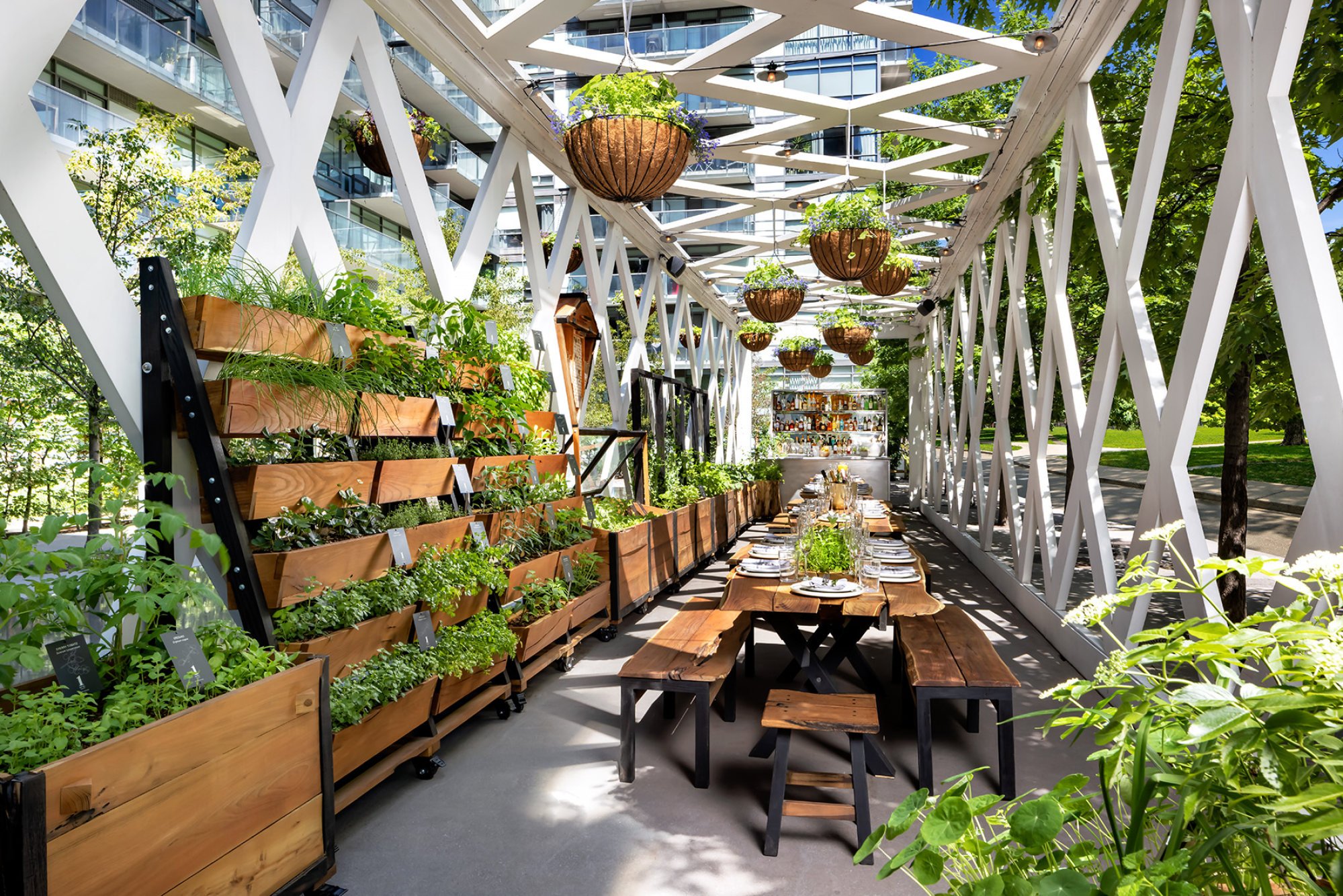 1 Hotel Toronto Garden Pavilion
1 Hotel Toronto Garden Pavilion
“For example, we add little touches like timers in showers to reduce water usage, and our 1 Less Thing donation program asks customers to leave behind some clothing that we will donate on their behalf. All of this is in addition to our larger, more important efforts to reduce our carbon footprint and reduce waste.”
The gold standard of any sustainability program is for guests to leave as more active participants in their journey.
“The more our guests want to know, the better. We want to connect with our guests and empower them to become stakeholders – stewards of the environments and places they visit,” says Kullandas. “Embodying and creating what I call a Gen 7 mindset is key to creating long-term impact.
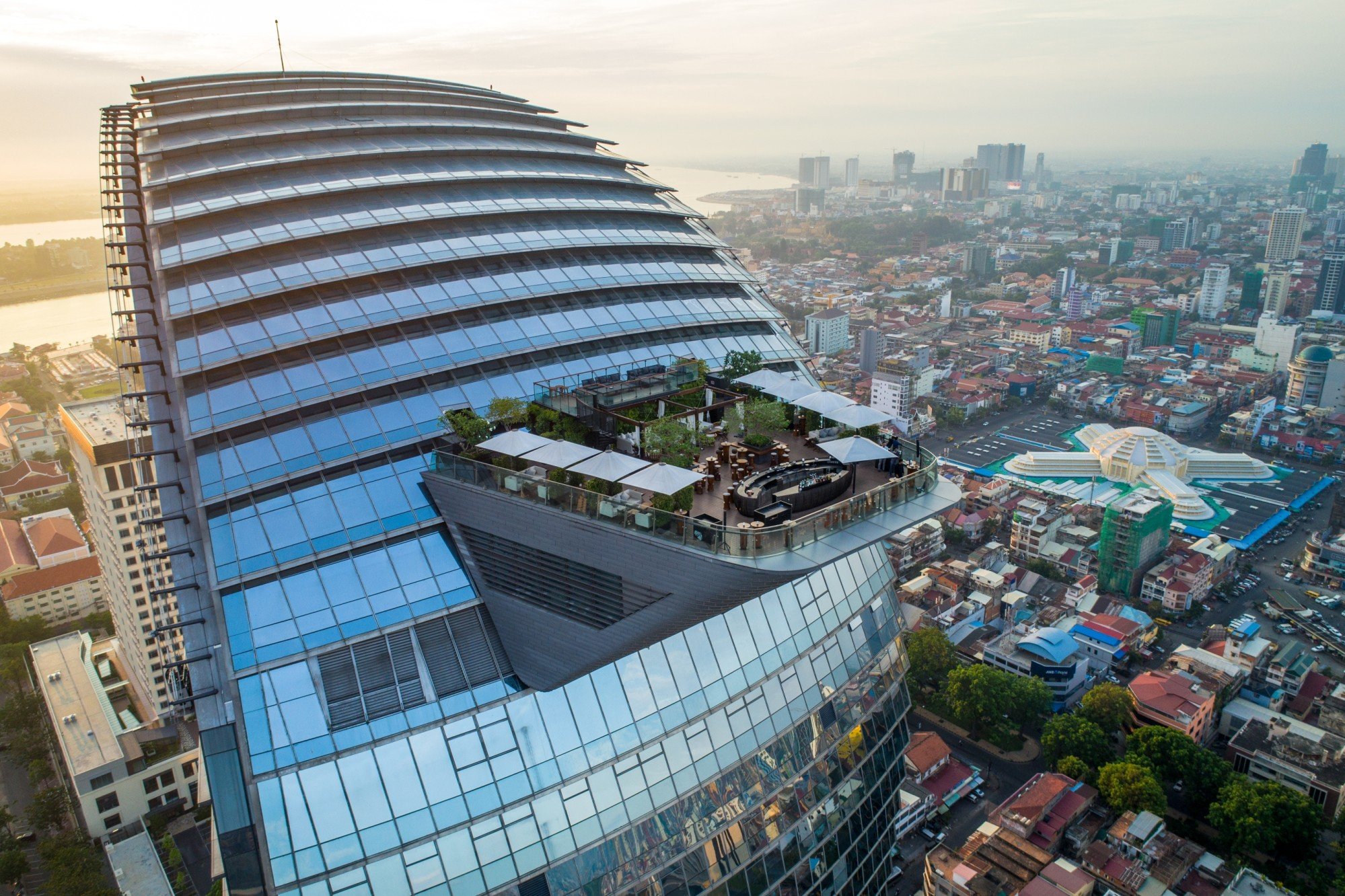 Rosewood Phnom Penh
Rosewood Phnom Penh
5 Tips for Choosing an Influential Hotel
Data isn't everything, but it helps: if a hotel makes a bold claim, it needs data to back it up.
Look for hotels that have substantive, clearly defined practices that go beyond tokenism such as encouraging energy and water conservation.
Do your due diligence by focusing on the hotel’s sustainability efforts, partnerships and credible certifications from organizations like B Lab.
Take a more holistic approach to choosing a hotel: it's a journey, so don't expect a hotel to tick all your boxes right away.
Don't be afraid to ask questions – staff and guest education is essential to the success of any program.



